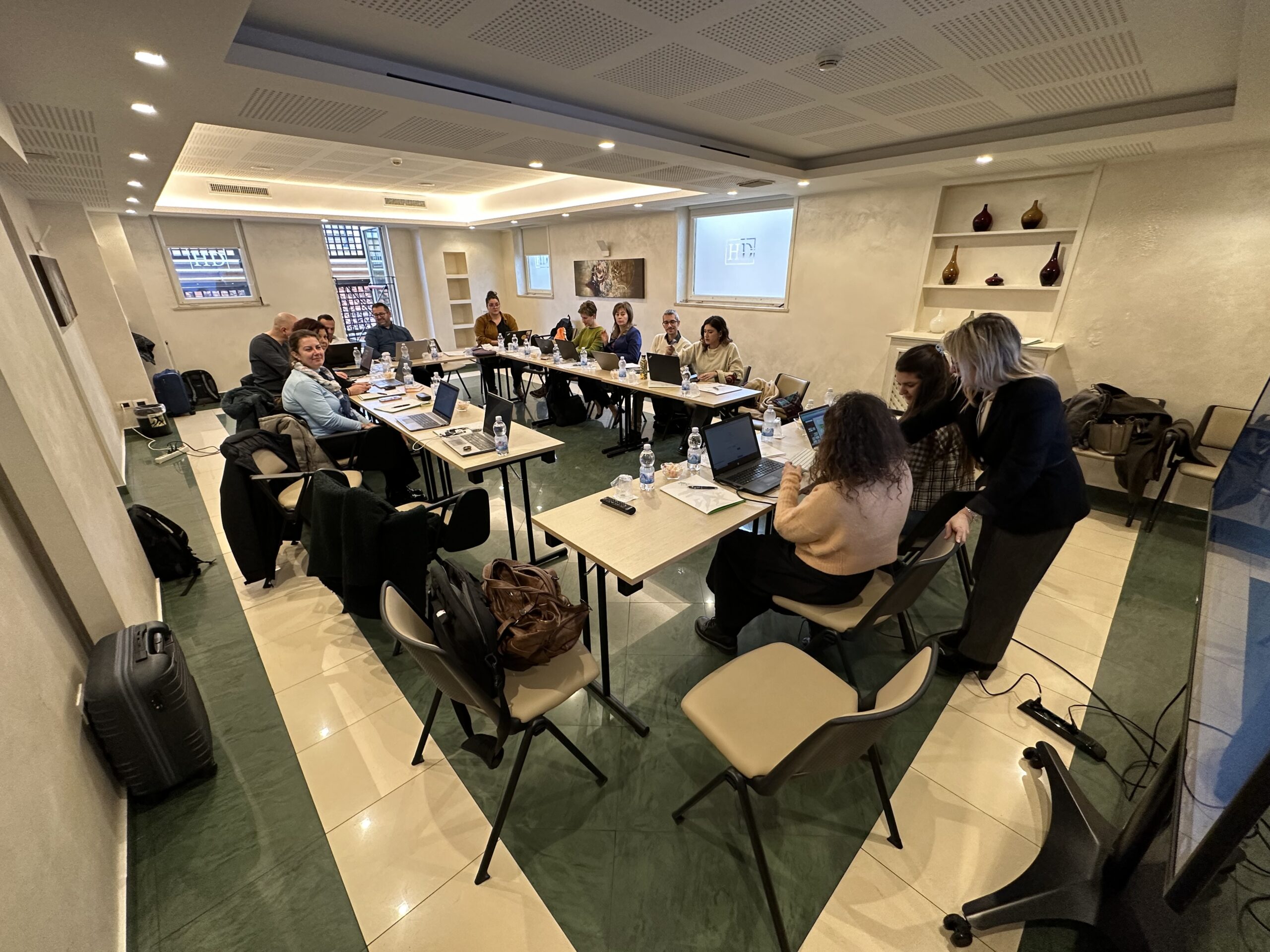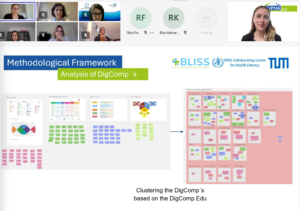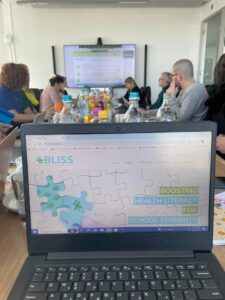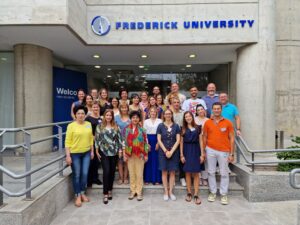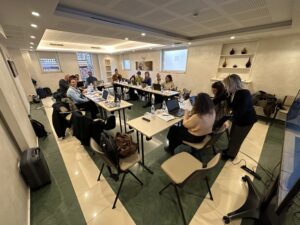The BLISS project (Boosting health Literacy for School Students) is funded for two year by the European Union under the Erasmus+ program from 2021-2023. On December 15 and 16, 2022, the kick-off meeting of the BLISS project took place in Rome with all project partners.
During the project meeting, the BLISS coordination and partners discussed and refined the project goals, the project plan, the respective responsibilities of the individual project partners and especially the first steps for the implementation of focus groups with teachers. All partners held presentations introducing themselves their institutions, and their work. In addition the academic partners Technical University of Munich (Munich, Germany) and Frederick University (Nicosia, Cyprus) presented their research. TU Munich, represented by Prof. Dr. Orkan Okan introduced into the concepts of health literacy and digital health literacy. In particular, Orkan talked about school´s health literacy, a relevant perspective to the project. While in the BLISS project, the main goal is to develop a framework for teaching and learning digital health literacy, which is based on the DigComp competency framework, Orkan has conducted similar research in previous work in the Health Literacy in Childhood and Adolescence Research Consortium (HLCA), funded by the German Ministry of Education and Research from 2015-2022, with the result of the Toolbox-HLCA. Toolbox-HLCA is a health literacy and digital health literacy toolkit that can be used across the curriculum to teach health literacy to schoolchildren.
The toolkit is based on the German Media Competence Framework, which itself is based on the German Digital Education that was developed based on DigComp. Both frameworks, media literacy and digital education were particularly adapted to the German school context. Because of that, Toolbox-HLCA was considered very relevant to the BLISS project by all partners. In his presentation, Orkan also highlighted evidence on child and adolescent health literacy and he emphasized that there is only limited evidence available since health literacy research on children and adolescents started less than a decade ago. There is even less evidence and knowledge available on digital health literacy, in particular in the context of education and schools. The BLISS project aims to close this gap and provide a first-time school intervention addressing digital health literacy.
In addition, the project partners from Italy, Romania, Cyprus, Greece, Belgium and Germany were able to get to know each other personally and start the project with great motivation.

